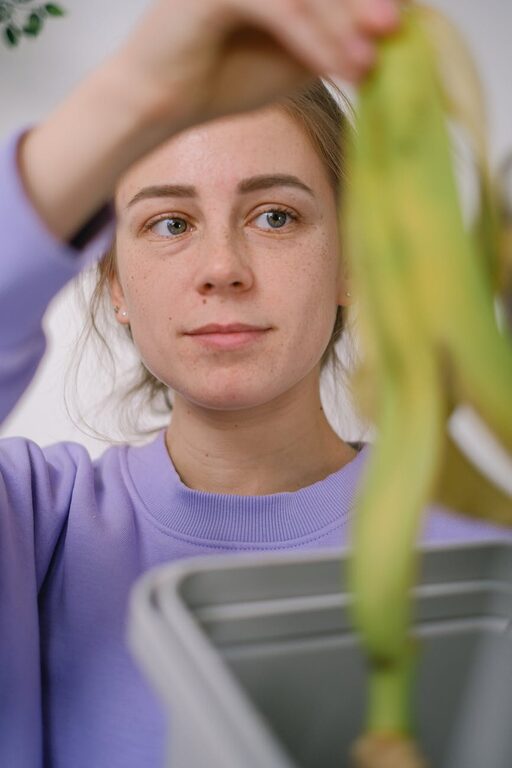Composting is an excellent way to reduce household waste and create nutrient-rich soil for your garden or plants. If you’re new to composting, it might seem a bit overwhelming at first, but with a few simple tips, you can start turning kitchen scraps and yard waste into valuable compost. This guide will walk you through the basics and help you begin composting at home with confidence.
What is Composting?
Composting is the natural process of recycling organic matter, such as food scraps and yard waste, into a dark, rich material that improves soil health. Instead of throwing these materials away, composting helps them break down into humus, a great resource for plants.
Why Compost at Home?
– Reduces landfill waste: Organic waste makes up a large portion of trash; composting cuts down on what you throw away.
– Enriches soil: Compost adds nutrients and improves soil structure for healthier plants.
– Saves money: Less need for chemical fertilizers or purchasing soil amendments.
– Benefits the environment: Composting lowers greenhouse gas emissions from decomposing waste.
Getting Started: What You’ll Need
Choose a Composting Method
- **Compost bin or pile:** You can buy a compost bin or simply designate a spot in your yard for a compost pile.
- **Tumbler composters:** These are enclosed bins that you can spin to mix materials easily.
- **Indoor composting:** Bokashi bins or worm composting (vermicomposting) are great for small spaces or apartments.
Choose a method that suits your space and lifestyle.
Gather Materials
Compost needs a mix of “greens” and “browns”:
– Greens: Nitrogen-rich materials like fruit and vegetable scraps, coffee grounds, fresh grass clippings.
– Browns: Carbon-rich materials like dry leaves, shredded paper, cardboard, straw.
Avoid meat, dairy, oily foods, and pet waste, as these can attract pests or create odors.
Step-by-Step Guide to Composting for Beginners
1. Pick the Right Location
Find a dry, shaded spot with good drainage for your compost bin or pile. This helps maintain moisture and accelerates decomposition.
2. Start Layering
Begin your compost with a small layer of browns, such as dry leaves, to promote airflow. Alternate layers of greens and browns—this balance is important to keep your pile healthy.
3. Maintain Moisture
Your compost pile should be about as damp as a wrung-out sponge. Water it occasionally if it feels dry, but avoid soaking it.
4. Turn the Pile Regularly
Mixing your compost every few weeks adds oxygen and helps break down materials faster.
5. Monitor Temperature
A healthy compost pile gets warm in the center. This heat is a sign that decomposition is happening. If it’s too cool, add more green materials and turn the pile.
6. Be Patient
Composting can take anywhere from a few months to a year. Finished compost looks dark and crumbly with an earthy smell.
Common Composting Challenges and Solutions
– Pests: Keep meat and dairy out of the compost. Cover food scraps with brown materials and use a secure bin.
– Odor: A bad smell means your compost is too wet or has too many greens. Turn the pile and add more browns.
– Slow decomposition: Ensure proper moisture and mix the pile to increase oxygen flow.
How to Use Your Finished Compost
Once your compost is ready, use it to:
– Enrich garden beds and flower pots
– Mulch around trees and shrubs
– Improve lawn soil by spreading a thin layer
– Make seed-starting mix by combining with potting soil
Tips for Successful Home Composting
– Chop food scraps into smaller pieces to speed decomposition.
– Avoid adding diseased plants or invasive weeds.
– Keep a small container in your kitchen for scraps to make composting easier.
– Educate household members on what can and cannot go into the compost.
Final Thoughts
Composting at home is a rewarding practice that benefits your garden and the environment. By starting simple and following these beginner tips, you’ll turn waste into black gold that nourishes your plants and helps reduce landfill contributions. Give it a try—you’ll be amazed how this natural process can transform your gardening experience!
Happy composting!

